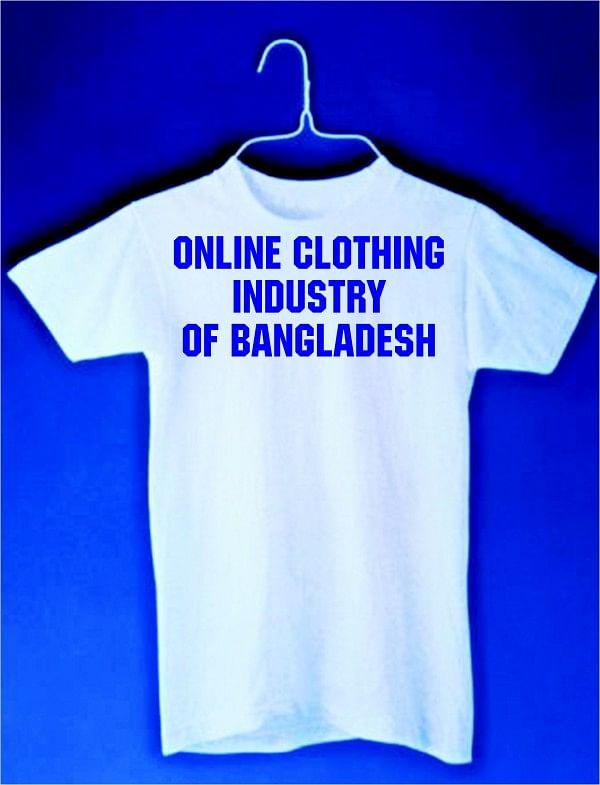
By Munawar Mobin
Even though we're supposed to embrace the notion of 'Digital Bangladesh' and we're expected to expect something of the sort in the future years to come, the idea of a 'digital' Bangladesh does seem just the tiny bit farfetched doesn't it? So when one comes across an online clothes industry, it is quite shocking (like the Dexter season four finale… okay maybe not that shocking). What is even more surprising is that these companies are founded and run by youngsters of no more than twenty years of age.
'Waveshift', 'Red Rose Machine', 'Hardstyle Revolution' and 'Overture' are some of the companies that are currently in this business. They each have respective Facebook pages and the merchandise is available for customers to see in the form of wall photos and albums. Customers can refer to whichever product they want and post their orders on the Facebook walls along with their phone number. They are then contacted by an employee and arrangements are made. Most of these companies boast home deliveries. A home delivery would cost extra, Tk. 50 more, and is limited to certain areas of the town. However if more than one or two products are ordered, the delivery is free of charge. The prices vary from Tk.400 Tk.800, depending on the design.
Waveshift founders Samin Khan and Nowroze Rahman and Red Rose Machine's creators Inqiyad Karim and Rifat Hassan were kind enough to share a few things about their respective businesses. Both companies seem to have started out with the same notion, to provide unique t-shirts for the teens of Dhaka. They both rely on the internet for designs and also have designers of their own to come up with new and attractive t-shirts. Waveshift has a family connection to a printing factory whereas Red Rose, impressive as ever, bought their own. There is a wide variety of t-shirts available in different colours and designs. Waveshift's t-shirts are made in sets of fives which means that when they say exclusive, they really mean it. No more than five t-shirts with the same design are made, and this makes all of their products limited.
The first barrier they hit when they initialised the project was the costs. At our age, we don't really have much cash to spare what with most of it gone on new DVDs and shisha lounges. So coming up with thousands of takas for a company with no predictable profit margin or even revenue gain is a scary thought. However these guys pulled through and they found a way to get going with low costs. Facebook.
'Facebook has been great to us. No headaches. Low Cost. No down payments.'
With the simple inclusion of Facebook, they managed to cut down advertisement costs to a complete zero.
Smart, eh?
'We make t-shirts referring to Bengali cultures, in such a manner that they are always stylish, unique and exclusive. We know what teenagers of today like.'
Inqiyad of Red Rose says that they make the t-shirts according to what people of today want. The Facebook wall on their fan pages are there for customers to state opinions and demands for new designs. The wall thus provides the company with inspiration and ideas for upcoming t-shirts. Getting out and attaining ideas about customer's tastes and current choices, carrying out surveys and such thus prove to be unnecessary, further lowering costs.
Waveshift's advertisement campaigns include sponsoring; having already done so in two major concerts, their popularity seems to be fast growing. They intend to expand and open their very own outlet store - which is an expected outcome. Red Rose, however, has other plans.
'Our business is an online clothing store. This makes us different from others.'
Opening outlet stores in huge shopping malls and such seems like the desirable notion because obviously, it makes for increased efficiency for consumers and sellers both and greater revenue gain. What exactly makes them different then? Instead of planning to expand and create stores, these guys want to sell their products and grow online; they want to keep their business online rather than go out and build stores. This might be a daring move but to this writer, this is quite admirable. A risky yet very substantial move, this might be the stepping stone for the rest of Bangladesh so start thinking in a similar, more 'digitalised' manner.
We hear of young entrepreneurs from all around the world paving the path to success, climbing ladders, reaching the stars and what not. Well, Bangladesh isn't short on any of those either. These founders have barely reached their twenties and they're already pioneers of Bangladesh's online clothing sector. All hail Bangladesh.
